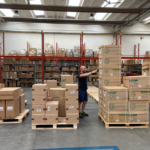Positions
Regulation of Tobacco Products
The regulation of tobacco products in a wider sense, covering the manufacture and trading of tobacco products, the places where smoking is allowed and where it is prohibited, is not a phenomenon of the present, it has existed in Europe for almost as long as tobacco has been used or consumed here. Up until the end of the 20th century, the rules and regulations concerning the marketing of tobacco products and their use were exclusively a matter of the European countries.
Since regulation regularly encroaches on spheres of life and spheres of activity that are protected or worthy of protection, or are of economic or financial relevance, associations and interest groupings have emerged in countries of Europe, that, by engaging in dialog with regulators, have introduced aspects that can contribute to achieving proper regulation.
In addition to national state regulations, over the last two decades, the European Union, in its role as regulator, has harmonized certain standards in the EU via the tobacco product directives and their various stages, providing impetus for new regulations.
The ETV, as umbrella organization of European tobacco wholesaler associations, has taken on the role of mediator between European associations and Brussels: on the one hand providing information to the associations in the nation states and, on the other hand, bringing aspects of the European wholesaler associations into discussions and hearings in Brussels.
The aim of the ETV is to work towards European regulations being drawn up in such a way that the principles of subsidiarity and proportionality are upheld in order to achieve appropriate and effective regulation regarding legitimate objectives, in particular the protection of children and adolescents. It goes without saying that the focus of ETV is on issues, aspects and regulations that affect and concern the function of wholesale trading in Europe.




